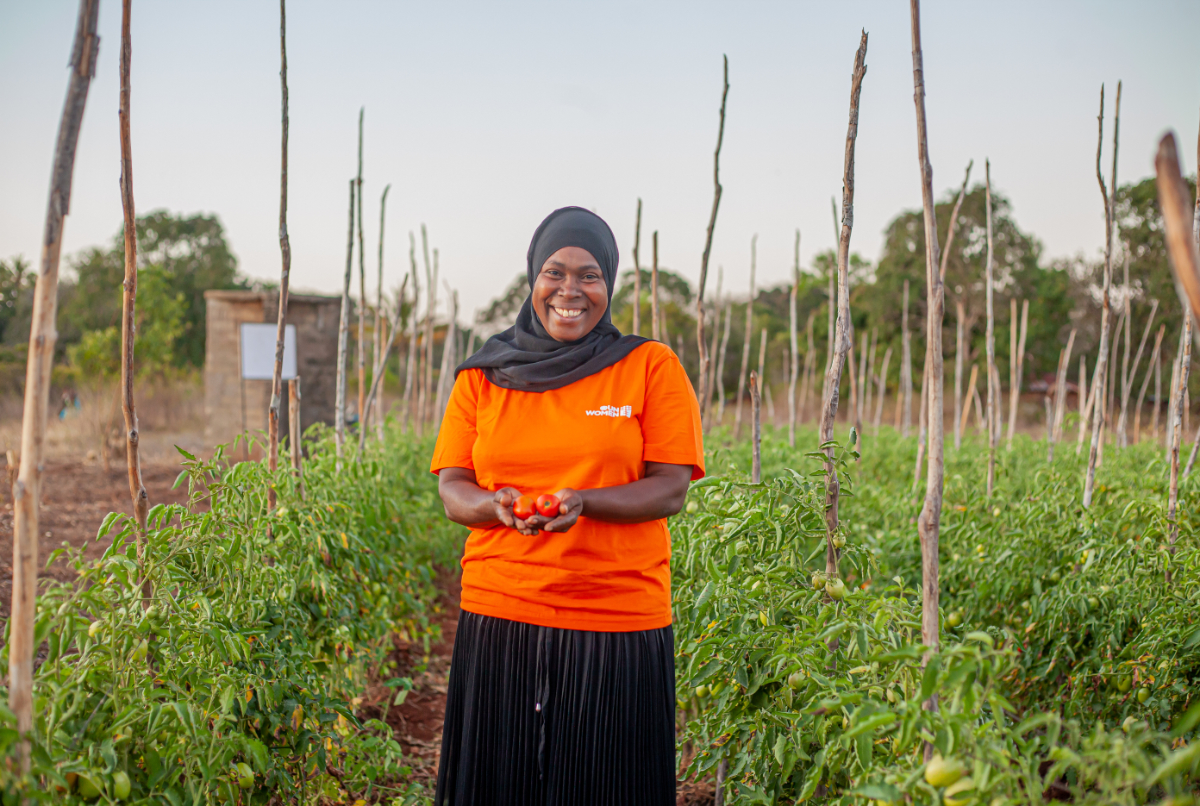UN Agencies Launch a Joint Programme in Zanzibar to Accelerate Women Empowerment
Date:
[Press release]

ZANZIBAR - Today, the Food and Agriculture Organisation of the United Nations (FAO), International Fund for Agricultural Development (IFAD), the United Nations World Food Programme (WFP) and UN Women joined efforts to launch a five-year joint programme titled the “Accelerating Progress Towards Rural Women’s Economic Empowerment project (JP RWEE),” which is worth US$ 5 million through funding from Norway and Sweden.
The JP RWEE project will be implemented by the four UN Agencies in Singida, Dodoma and Zanzibar and benefit more than 8,000 Tanzanians. The project seeks to empower rural women by securing their livelihoods, rights and enhancing their resilience in the agriculture sector.
Speaking at the launch, Hon Minister Suleiman Masoud Makame, Minister of Blue Economy and Fisheries said, “Gender equality is crucial to achieving the Sustainable Development Goals (SDGS). Tanzania recognises this and has adopted policies that advance gender equality. As a government we recognise and appreciate the continued partnership by the United Nations in Tanzania to support our efforts towards advancing gender equality especially in the agriculture sector. This joint programme by FAO, IFAD, WFP and UN Women is a demonstration of this continued support.”
In Tanzania, agriculture provides 77 per cent of the total employment, contributing 26.9 per cent to the Gross Domestic Product (GDP) and 65 per cent of inputs to the industrial sector. The bulk of food is produced by small-scale farmers, with women accounting for the majority of the labour force who earn 80 percent of their income from subsistence farming. Unfortunately, gender inequalities rooted in discriminatory patriarchal systems and social norms hinder women from accessing agricultural extension services, markets, land, and formal financial services.
The COVID19 pandemic impacted the agricultural sector and local food systems through restricted market access and increased costs of inputs. The impact on women was severe, as the majority are employed in the informal sector, and their burden of care and domestic work increased.
“It is clear that rural women are facing a number of challenges that are impacting their ability to increase their productivity and incomes. We need to step up our support both now and into the future to help address these challenges and support rural women’s pathways to progress,” said Sima Bahous, Executive Director, UN Women.
Agriculture productivity in the country is further affected by climate change due to increased temperatures, frequency of droughts, unpredictability in rainfall and rising sea levels. Future projections on temperature increase would be devastating for agriculture and livestock production, as 95 per cent of agricultural activities depend on rainfall. The overreliance on rainfed agriculture for livelihoods restricts the adaptive capacity of rural communities and often leads to negative coping mechanisms with regards to livelihoods and food consumption.
“The launch of this joint programme is timely as it comes at a time when the sector is faced by a myriad of challenges. The collaboration between the four UN agencies – FAO, IFAD, WFP and UN Women, brings together specialist expertise in agricultural, rural development interventions and expertise in gender mainstreaming that are key to addressing the challenges and building their resilience. The time is now for action,” said, Ms. Sarah Gordon-Gibson, WFP Country Director and Country Representative, on behalf of the implementing agencies.
Climate change disproportionately affects women due to their reduced access to agricultural resources and inputs, lack of decision-making authority, and consequent weak adaptation strategies. The programme will address this by building women’s capacity on climate smart agriculture, business development, leadership training, access to markets for self-help groups, and by supporting existing and new Village Savings and Loans Associations to become officially registered and access financing.
The JP RWEE project in Tanzania is part of the second phase of a global programme being implemented in Nepal, Niger, the Pacific Island and Tunisia. The first phase of the programme was launched in 2014 in Ethiopia, Guatemala, Kyrgyzstan, Liberia, Nepal, Niger and Rwanda.
FAO
The Food and Agriculture Organization of the United Nations (FAO) is a UN specialized agency that leads international efforts to end hunger by supporting governments in transforming agri-food systems for Better Production, Better Nutrition, Better Environment, and Better Life – leaving no one behind. With 195 members - 194 countries and the European Union, FAO works in over 130 countries worldwide. We believe that everyone can help to end hunger.
@FAOTanzania
IFAD
IFAD invests in rural people, empowering them to reduce poverty, increase food security, improve nutrition and strengthen resilience. Since 1978, we have provided US$23.2 billion in grants and low-interest loans to projects that have reached an estimated 518 million people. IFAD is an international financial institution and a United Nations specialized agency based in Rome – the United Nations food and agriculture hub.
WFP
The United Nations World Food Programme is the world’s largest humanitarian organization, saving lives in emergencies and using food assistance to build a pathway to peace, stability and prosperity for people recovering from conflict, disasters and the impact of climate change.
@WFP_Tanzania |@SGordonGibson
UN Women
UN Women is the United Nations entity dedicated to gender equality and the empowerment of women. A global champion for women and girls, UN Women was established to accelerate progress on meeting their needs worldwide.
@unwomentanzania | @addouhodan
For more information, please contact;
Alice Maro – FAO | Mob. +255 685110670 | Email: [ Click to reveal ]
Linda Odhiambo – IFAD | Mob. +254 780 320 073 | email: [ Click to reveal ]
Desta Laiser – WFP Tanzania | Mob. +255 768 525 270 | Email: [ Click to reveal ]
Hanna Mtango – UN Women Tanzania | +255 767 220 883 | Email: [ Click to reveal ]